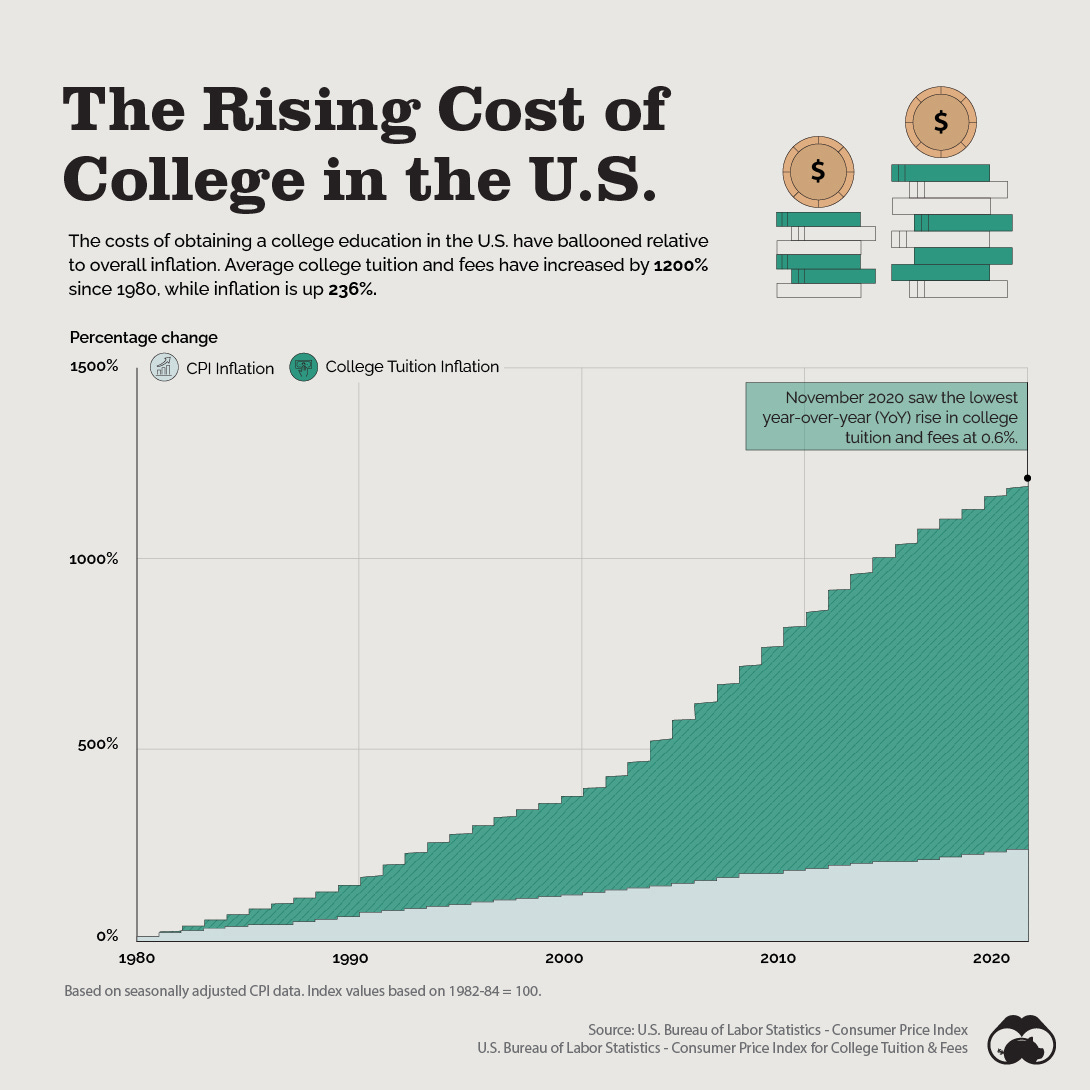In the crypto world, “the flippening” refers to the hypothetical point in time when Ethereum’s market cap overtakes and flips Bitcoin’s market cap.
Since the flippening became a popular phrase, the idea has been used to describe big changes in... everything.



The Higher Education Flippening
I’m tracking the higher ed flippening.
Balaji Srinivasan has tweeted about an educational flippening, and I hope to expand on the idea in this post.
I’ll define the higher ed flippening as the hypothetical point in time when more people attend digital-first, alternative educational institutions than traditional, degree-centered educational institutions.
I originally tweeted about the higher ed flippening when I saw this article.
About 20 million people attend college in the US every year, so losing half a million in a year is a big number.
It is difficult to find clean data on the total number of people attending digital-first alternatives, but to give context, we’re likely far from the higher ed flippening - only 25,000 students graduated from coding bootcamps in 2020.
While I’m predicting a higher ed flippening to occur, I am in favor of all education.
I am writing this post out of the desire to improve all educational opportunities. I am writing this to encourage us to build alternatives that will create a more competitive education market. This will improve both alternative and traditional education for all.
An Opportunity
As noted in the Washington Post article, value is one concern for students opting out of traditional college.

Given the changing state of the world, technologists, founders, and investors can and should build low-cost, high-quality alternatives to the traditional education system. These alternatives will give people that are opting out of the traditional system another way to get a high-quality education. (Praxis is a great example).
The higher ed flippening should be looked at as an opportunity not a problem. It’s an opportunity to provide alternative solutions to people who are not satisfied with the current options.
If they’re opting out because of cost, we can create digitally-native alternatives that match the quality and opportunity at a fraction of the price.
I believe that building these alternatives is entirely possible if not inevitable, and I am working to contribute to the space (more here: Introducing Taptive).
Education for Citizens of the Internet
The higher ed flippening aligns with an overall macro trend that I outline in my post: Education And The Changing World Order.
To summarize, we may be entering a multipolar world that is no longer dominated by the United States. One of the potential players in this new world is loosely defined as: citizens of the decentralized, global internet.
The higher ed flippening will be a leading indicator of the rise of the internet as a force in the multipolar world. In a feedback loop fashion, digitally-native, alternative education will benefit from the continued rise of the internet.
Marc Andreessen writes that the digital economy could be larger than the entire physical economy.

If this statement is even directionally correct (and it makes a lot of assumptions), there will be huge opportunities for people building, collaborating, and working on the internet.
While the macro outlook is blurry, digitally-native, alternative education companies like Bloom Institute of Technology and On Deck show the potential of alternatives, the growing importance of the internet’s role in education, and the possibility of a higher ed flippening.





Great article! Reminds me this tweet: https://twitter.com/shaanvp/status/1454151237650112512?lang=en
Metaverse as the moment in time when our digital life is worth more than our physical life. Similar to Andreessen's tweet about the world's digital economy becoming bigger than the physical economy.